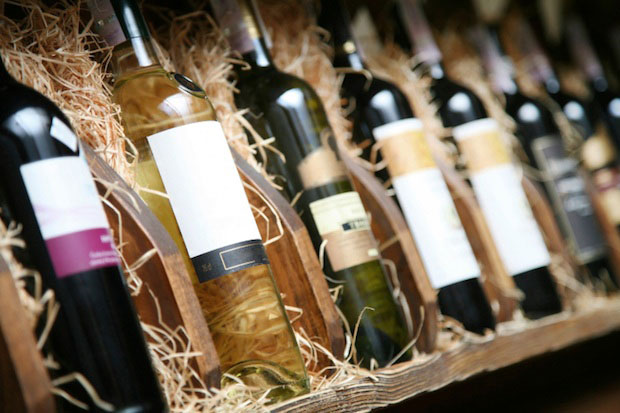It is a trick which often works on children. Do not tell them to eat vegetables; instead ask whether they want broccoli or spinach.
Question such as ‘Red or white?’ or ‘Still or sparkling?’ are examples of placebo choice: a psychological hack which works rather like the placebo ‘door close’ buttons in lifts (which are usually not wired up to anything but exist to give impatient people the illusion of control).
Such questions give the feeling of choice without offering much at all. The hack needs to be viewed with caution since it can subtly transmute ‘I prefer B to A’ into ‘I want B’. Watch out for canny estate agents who show you a slightly inferior house just before they show you the one they really want to sell.
If you think you can’t be manipulated, then next time you go for a restaurant meal in a group, see how difficult it is to avoid drinking wine. Restaurants do everything they can to make sure you drink wine, since it is disproportionately profitable (unlike, say, gin; I have no idea what a bottle of Château de l’Effet d’Ancrage costs, so they can get away with buying it at £8 and flogging it at £35 without anyone feeling ripped off).
So they put wine glasses on the table by default, and hand you a menu suggestively called ‘a wine list’. Of this, the first five pages consist of an insanely large variety of wine, with a lonely page at the back for those deviants and misfits who prefer to drink something made by people who have evolved to the level of ingenuity required to grow hops and practise distillation. But merely scanning that back page feels like reaching for the top shelf in a newsagent’s (for younger readers, that’s the analogue equivalent of forgetting to delete your browser history).
Most cunning of all, they only hand out one wine list to each table. This again assumes that one person should order drink for the party to share. Wine is the only alcoholic drink available in shareable bottles, so making the booze decision a collective one effectively mandates wine drinking. Once the man holding the wine list asks ‘Red or white?’, it’s game over. A preference has suddenly become a choice.
Which brings me to the phrasing of the referendum question. Was it just complete idiocy, or was it a work of evil genius, designed to create far more division than necessary?
Wording matters. Some recent academic research suggests that posing the same question but appending the words… ‘or not?’ might have reduced the yes vote by 5 per cent or so. Allowing one side to own the word ‘Yes’ was a gift. Framing the question as though there were no intermediate possibilities between status quo and separation forced many Scots into an extreme position which they would never have chosen from a wider menu.
Yesterday I noticed another example of dubious choice architecture by government. When I signed up for the electoral roll online I was asked ‘Would you like a postal vote?’ The first option was: ‘No, I prefer to vote in person.’ This is appalling — equivalent to suggesting that postal voting is the default option. Oddly, the phrasing on the paper form nudged in completely the opposite direction: ‘If you are unable to get to a polling station, you may vote by post.’
Postal voting for all but the incapacitated is an appalling idea, with huge risks of fraud and in–family coercion. I suspect many politicians collude in supporting it, since it increases the turnout and hence their ‘mandate’ and ‘legitimacy’. People should vote simultaneously: in the event, up to 600,000 Scots may have voted three weeks before election day.
Got something to add? Join the discussion and comment below.
Get 10 issues for just $10
Subscribe to The Spectator Australia today for the next 10 magazine issues, plus full online access, for just $10.
Rory Sutherland is vice-chairman of Ogilvy Group UK.
You might disagree with half of it, but you’ll enjoy reading all of it. Try your first month for free, then just $2 a week for the remainder of your first year.















Comments
Don't miss out
Join the conversation with other Spectator Australia readers. Subscribe to leave a comment.
SUBSCRIBEAlready a subscriber? Log in